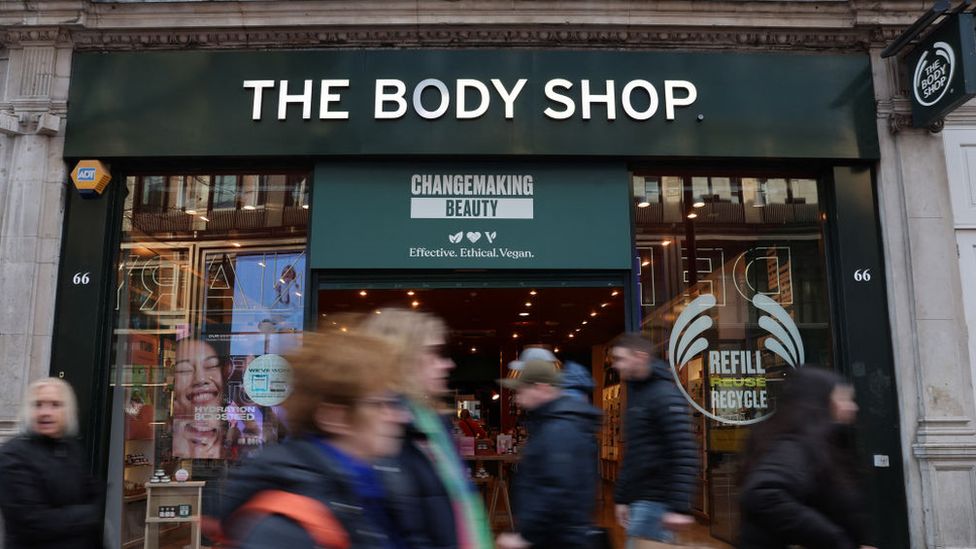WASHINGTON/SAN FRANCISCO (Reuters) – Over two frantic weeks, the U.S. authorities pledged $350 billion to Important Avenue companies throughout America determined for money after coronavirus lockdowns.
FILE PHOTO: An individual in a masks walks on a virtually empty road within the coronavirus outbreak close to the Treasury Division in Washington, U.S. March 30, 2020. REUTERS/Jonathan Ernst
Now an image is rising of who obtained the cash. Greater than 25% of the entire pot went to fewer than 2% of the corporations that obtained aid. They embrace numerous publicly traded firms with 1000’s of workers and lots of of tens of millions of {dollars} in annual gross sales.
The loans from the U.S. Small Enterprise Administration – totaling $342.Three billion as of Thursday – went to firms in all 50 states, the District of Columbia and 5 U.S. territories, and had been unfold throughout all 20 of the primary business sectors.
Congress directed the SBA to award $349 billion to struggling companies with 500 or fewer staff as a part of a $2.Three trillion coronavirus assist package deal that President Donald Trump signed into legislation on March 27. The Payroll Safety Program (PPP) was crafted to maintain People off unemployment advantages, by giving small and mid-sized firms forgivable loans for preserving workers on the books.
The SBA doesn’t make the loans instantly however as a substitute backs loans made by collaborating monetary corporations.
The three largest state economies – California, Texas and New York – accounted for 23% of the loans, greater than $82 billion. In the meantime, companies in numerous small, rural states which have prevented the brunt of the outbreak took house a disproportionate share of the pie.
The enterprise sector receiving essentially the most cash was building, with 13% of the entire. The sector represents lower than 9% of total employment amongst U.S. corporations with 500 or fewer workers, in accordance with U.S. Census Bureau knowledge from 2017, the most recent accessible.
Corporations on the entrance line of the virus – within the lodging and meals providers sector – acquired about 9% of the pot whereas representing almost 14% of staff amongst sub-500 individual corporations.
(GRAPHIC displaying a state-by-state breakdown: right here)
(GRAPHIC displaying breakdown by business: right here(
(GRAPHIC displaying states’ share of loans vs small enterprise exercise: right here)
MAIN STREET? WALL STREET?
Loans of $2 million or extra made up almost 28% of the entire, and people of not less than $5 million accounted for 9%, with numerous these going to firms with entry to public securities markets.
At the least 60 publicly traded corporations have claimed a share of the entire, in accordance with Securities and Alternate Fee filings. There is no such thing as a prohibition within the CARES Act towards cash going to publicly listed corporations.
Some – together with the holding firms for well-known restaurant chains Shake Shack and Ruth’s Chris Steak Home – seem to have taken benefit of a provision within the CARES act that permits firms with greater than 500 staff total to get loans.
The exemption permits for companies within the lodging and meals providers business to take part as long as they don’t exceed 500 workers per bodily location.
Shake Shack Inc, Ruth Hospitality Group Inc, Potbelly Corp and Fiesta Restaurant Group’s Texas Taco Cabana all borrowed $10 million underneath this system by way of JP Morgan Chase & Co, SEC filings present.
Hallador Power Co, which operates coal mines, acquired $10 million from First Monetary Financial institution.
All have greater than 500 workers.
Shake Shack has closed 63 of its 120 areas worldwide, and furloughed or laid off greater than 1,000 workers after gross sales fell 28.5% in March, it stated in a submitting April 17. It was unclear what number of of its 100 U.S. shops stay open, however filings confirmed that it employed 7,600 on the finish of 2019. The corporate, which generated $595 million in gross sales and a $20 million internet revenue in 2019, stated it can proceed to pay all common managers and canopy all workers’ medical insurance.
Texas Taco Cabana operates 164 retailers from Houston to Albuquerque. Fiesta, which additionally runs a series of rooster eating places in Florida and posted $661 million in gross sales final 12 months and a internet lack of $84.four million, employed 10,480 on the finish of 2019. It didn’t instantly reply to an inquiry in regards to the variety of workers that will be coated underneath the mortgage.
Potbelly had 474 retailers in 32 states, together with 48 franchisees, and employed 6,000 individuals on the finish of 2019, filings confirmed. Gross sales final 12 months totaled $410 million, although it posted a internet lack of $24 million.
“Each penny shall be used to financially assist the workers in our retailers,” stated Potbelly’s Chief Folks Officer Matt Revord.
Hallador employed 768 as of February 2020, its filings confirmed. It didn’t instantly reply to an electronic mail looking for remark.
SMALL STATES, BIG WINS
With the PPP funds depleted as of this week, additional assist has stalled in Congress amid a partisan dispute over assist for state governments and hospitals.
The financial ache of coronavirus-related shutdowns has been felt all through the nation. The SBA’s loans appeared to achieve a higher proportion of companies in Republican-leaning states which have imposed the lightest restrictions on enterprise and have had comparatively few confirmed coronavirus circumstances.
SBA awarded 583 loans for each 1,000 companies in North Dakota, in accordance with a Reuters evaluation of SBA and Census Bureau knowledge. In California, SBA loans solely reached 149 of each 1,000 companies.
The SBA has not launched knowledge on the variety of corporations looking for loans, both total or in every state, so it’s unclear what contributed to the upper proportion of companies in so-called “pink states” getting loans.
“I’m onerous pressed to not assume that is political. Blue states like California obtained a pathetic variety of loans issued,” Consultant Jackie Speier, a California Democrat, stated on Twitter.
Others stated the disparity was as a result of several types of lenders concerned.
Smaller banks, which have a higher presence in rural areas, had been prepared when SBA launched this system on April 3, whereas many bigger banks and nonbank lenders weren’t capable of take part till the next week.
“The bankers right here, they know the farmer, they know the barber, they know the cafe proprietor,” stated Republican Consultant Jeff Fortenberry of Nebraska, the place SBA loans reached 558 of each 1,000 companies.
Reporting by Andy Sullivan, Howard Schneider and Ann Saphir.; Enhancing by Dan Burns



